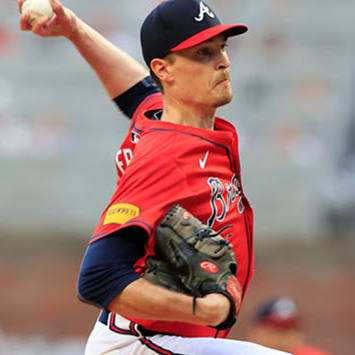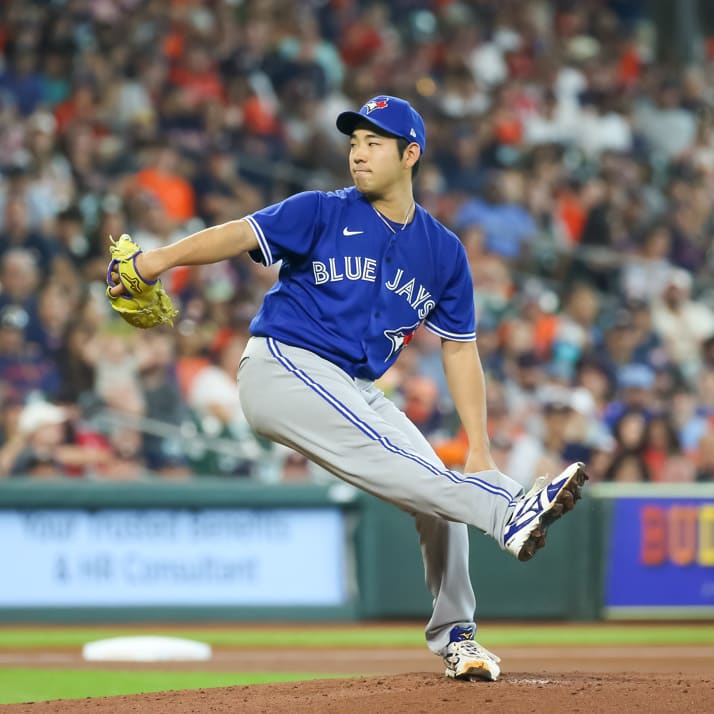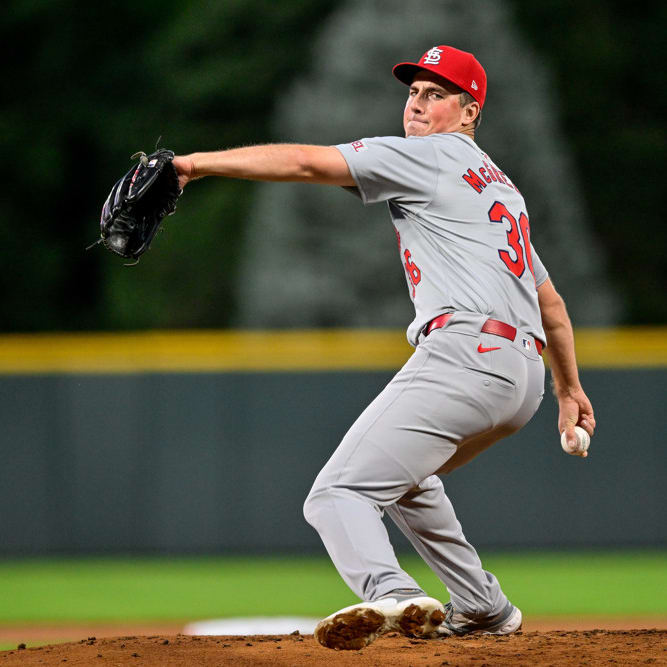This article is part of our DFS Baseball 101 series.
After focusing on real-time trading games the last two weeks, I took a step back this week and played some of the pre-game contests over at TradeSports.com. The real-time format offers a more interactive experience throughout the sporting event, while the pre-game format closes all trading before the event starts, allowing daily gamers to sit back and enjoy the fruits of their labor.
The pre-game contests, as you might guess from the name, are based solely on predictions/trades that occur before the first whistle. Every stock has a fixed price that doesn't change as players trade, a major difference from the real-time format. Each user gets a $50,000 budget to work with, and is required to risk at least $2,000 on three different stocks. Contest formats include 50/50s, winner takes all (WTA), and top-three get paid. I opted for the 50/50s and WTAs this week, but I'll take a look at the more detailed prize structures at some point in the future.
Contest #1
Washington Nationals at San Francisco Giants, Tuesday June 10
$5.50 entry, five players, winner takes all ($25)
The first contest we'll look at was based on Tuesday's Nationals-Giants game, which featured an excellent pitching matchup between Doug Fister and Madison Bumgarner. Given the winner-take-all format, my only goal was to finish in first place. The stock options were as follows:
- Giants to win (price: $58)
- Giants to win by more than 4.5 runs (price: $38)
- Nationals to win by more than 2.5 runs (price: $39)
- More than 6.5 total runs (Price: $50)
- Madison Bumgarner to have more than 7.5 strikeouts (price $51)
- Jayson Werth and Ryan Zimmerman to combine for more than 1.5 RBI (price: $42)
Both teams essentially put out their best lineups, though the Giants opted for Gregor Blanco's speed and defense in left field, rather than going with Tyler Colvin's power. Bumgarner is clearly a better pitcher than Fister, but the Nationals have been excellent against southpaws this season, which makes sense given their righty-heavy lineup.
I didn't pay much attention to which stocks were getting action and which direction the action was going, as a few of the options quickly stood out to me. Later, I'll cover a contest in which I paid very close attention to the "weight of money" and "open interest," heavily basing my decisions on going in the opposite direction of the crowd.
Anyway, the first thing that stuck out to me was "Bumgarner over 7.5 strikeouts" at a price of $51. The Nats are middle-of-the-pack in terms of strikeout percentage against left-handed pitching, and Bumgarner had only reached 8 strikeouts in five of his 13 starts heading into Tuesday's game. Given that I only had to risk $49 to win $51, "selling" a bunch of these shares was an easy enough decision. Of course, you aren't actually selling the shares to anyone, as you're essentially just buying stock in Bumgarner failing to top 7.5 strikeouts. The price of $51 means you'd be risking $51 to win $49 if you buy, but only have to risk $49 to win $51 if you sell. I opted to sell 438 shares, risking $21,462, or a little less than half of my budget.
Despite my belief that Bumgarner would fail to reach eight strikeouts, I figured the game would be low scoring, as both teams have excellent bullpens, and Fister has been dominant since his first start of the year. It also helps that the game was played at AT&T Park, one of the more pitcher-friendly venues in all of baseball. 6.5 runs is a low total, but the dominant bullpens really swung the decision, so I sold 300 shares of "More than 6.5 total runs."
Having already picked out the two stocks I felt strongly about, I still needed to risk $2,000 on at least one more. Because I was strictly shooting for first place, I wanted something that would likely pay off in the event that my first two stocks paid off. With my first two stocks hinting at a low-scoring Nats win, I opted to sell 150 shares of "Giants to win by more than 4.5 runs" at a price of $38, and also sold 100 shares of "Giants to win" at a price of $58.
Results:
The game played out exactly as I was hoping, as the Nats won 2-1, while Bumgarner only recorded five strikeouts. With all four of my stocks falling the way I wanted, I took the first-place prize of $25.
Contest #2
Boston Red Sox at Baltimore Orioles, Wednesday June 11
$5.50 entry, eight players, 50/50 payout
For the uninitiated, the 50/50 payout structure simply means that everyone in the top 50 percent gets the same prize, while everyone in the bottom 50 percent gets nothing. In this case, everyone in the top half would walk away with $10, after accounting for the rake of 50 cents on each entry.
Wednesday's Red Sox-Orioles game featured a pitching matchup between 28-year-old lefty Wei-Yin Chen and Boston rookie Rubby De La Rosa. These were the stock options for Wednesday's game:
- Orioles to win (price: $57)
- Orioles to win by more than 2.5 runs (price: $45)
- Red Sox to win by more than 2.5 runs (price: $33)
- More than 8.5 total runs in game (price: $50)
- Rubby De La Rosa to have more than 5.5 K's (price: $58)
- Dustin Pedroia and David Ortiz to have more than 3.5 hits combined (price: $47)
The last two stocks stuck out immediately, with both looking like obvious sells. As good as Pedroia and Ortiz are, four combined hits are a lot to ask for against a decent pitcher, and a price around $40 would make more sense. Of course, I wasn't the only one to pick up on this, as the open interest (aka number of shares already bought/sold) on the stock was well above 2,000, with 100 percent of the action on the selling side. Going against the crowd may not be as important in a 50/50 as in a WTA, but I knew that heavily selling the Ortiz-Pedroia stock wouldn't guarantee me anything, even if I were right.
The De La Rosa stock (price: $58) offered a much higher payoff for selling, as I'd only need to risk $42 to win $58. Thus, if I heavily invested in selling, I'd almost certainly finish in the money if the stock paid off. The price indicated that De La Rosa had a 58 percent chance to reach six strikeouts, but that number seemed way too high to me. Sure, he whiffed 13 through his first two starts of the season, but he'd been averaging a modest 5.2 strikeouts per game for Triple-A Pawtucket, prior to getting called up by the Red Sox. Facing a strong O's lineup with the 11th-best strikeout rate (19.5) in the majors against right-handed pitching, De La Rosa looked like a 50-50 shot to reach six strikeouts.
I decided that my best course of action was to bet heavily against De La Rosa strikeouts, and find a way that I might have some shot to win even if he fell short. With so much weight going against the Pedroia-Ortiz stock, I knew I'd lose if the duo fell short of 3.5 hits while De La Rosa topped 5.5 strikeouts. I also knew that going heavily against De La Rosa would put me in position to win in any scenario in which he fell short of 5.5 strikeouts. Thus, I searched for possibilities that would allow me to win in the event that De La Rosa topped 5.5 strikeouts and Pedroia-Ortiz topped 3.5 hits. With everyone going so heavily against the Boston duo, I knew scores would be very low if they surpassed the 3.5 mark.
Ultimately, I sold 1,000 shares of "De La Rosa over 5.5 K's", risking $42,000 to win $58,000. If I was right and he fell short of 5.5 K's, I'd finish with at least $100,000, which would certainly be enough to win, given that pretty much everyone else was heavily invested in a stock that paid off just $47 per $53 risked.
I still had to spend at least $2,000 on two more stocks, while focusing on the scenario in which De La Rosa tops 5.5 Ks and Pedroia-Oritz combined for four or more hits. With both of those outcomes pointing in the Red Sox favor, it made sense to buy some of "Red Sox to win by more than 2.5 runs" at a price of just $33. This was the perfect stock for my situation, as it was more likely to occur in the scenario I was scheming for, while also offering the upside that I'd need to win in said scenario. I went ahead and bought 180 shares, risking $5,940 to win $12,060. To fill out the three-stock requirement, I used the last of my money selling "Orioles to win", risking $2,021 to win $2,679.
Results:
While I actually think my strategy here was better than in the other contest, nothing worked out in my favor. De La Rosa entered the fifth inning with three strikeouts and four runs allowed, but he proceeded to strike out the side. Once he hit K No. 6, I knew my chances were slim to none, as I'd likely need the Red Sox to overcome a 4-0 deficit to win by three or more, without Pedroia and Ortiz reaching four combined hits. As it turned out, the O's won 6-0, while the Pedroia-Ortiz combo accounted for three of their team's four hits.











